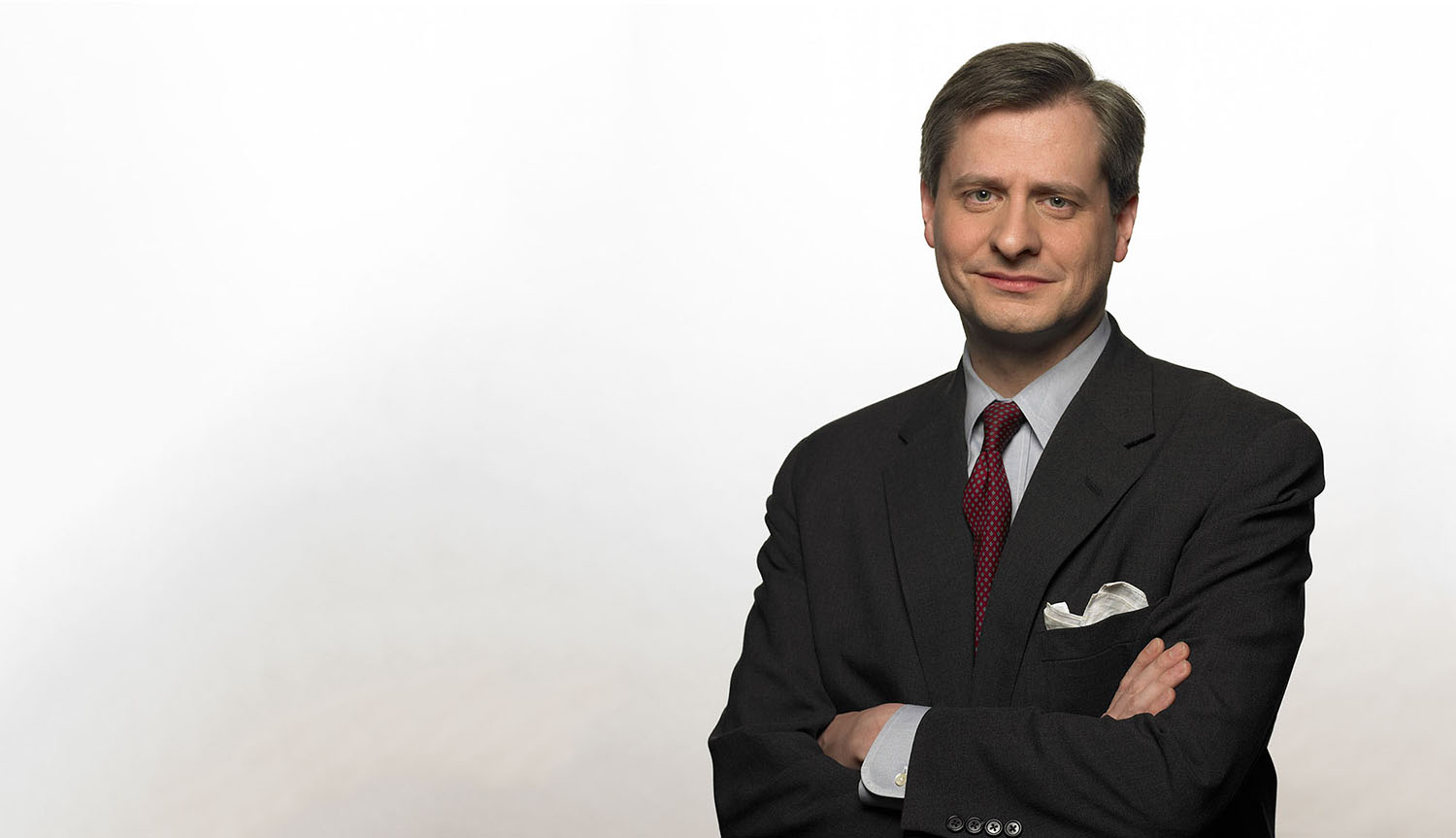
Meacham on Jefferson
Chattanooga Pulse | November 2012
“The only thing worse than winning a second term is not winning a second term.”
—Jon Meacham, Pulitzer Prize-winning historian, political commentator, author of “Thomas Jefferson: The Art of Power,” and native Chattanoogan, discussing the prospects for President Obama’s second term on “The Today Show,” on Friday, Nov. 9, 2012.
Jon Meacham could have been talking about any American president when he offered his prognostications for President Obama’s second term following his decisive re-election last week. In particular, he might well be referring to Thomas Jefferson, who served as the nation’s first secretary of state, its second vice president and its third president for two terms from 1801 to 1809. But it is specifically Jefferson’s influence and legacy Meacham finds so intoxicating and pervasive, a dynasty that that lasted for 36 of the 40 years between 1800 and 1840 in which Jefferson or a self-described Jeffersonian held the presidency—a feat that remains unmatched in American politics.
Meacham examines Jefferson’s preoccupation, pursuit and execution of power in his new book, “Thomas Jefferson: The Art of Power,” arriving in bookstores just in time for the recent election. He may be uniquely qualified to investigate Jefferson’s Svengali-like grip on American politics, reaching back in time from the subject of his previous best-seller, the Pulitzer Prize-winning “American Lion: Andrew Jackson in the White House.” That book probed the politics of the battle-tested Tennessean and seventh U.S. president whose enthusiastic followers created the modern Democratic Party. A Jeffersonian, Jackson also served two terms, from 1829 to 1837, a period that later became known as the era of Jacksonian Democracy.
Meacham, a Chattanooga native, will visit the city at 6 p.m. on Tuesday, Nov. 20, for a program at Lindsay Street Hall to read from and discuss his new book, the recent elections and American politics during a talk and question-and-answer session hosted by the Arts & Education Council. Meacham will sign copies of his book, which are free to ticket-holders, following the engagement. The event also acts as a precursor to the Celebration of Southern Literature, to be held from April 18-20, 2013, in Chattanooga. Proceeds from the appearance benefit the organization’s literacy programs. Tickets are $50 and $100 and are available by calling (423) 267-1218.
But why Jefferson—again? There are volumes of Jefferson biographies, more than a dozen in the last 30 years, examining, praising and criticizing every aspect of the revered Founding Father. Meacham is undeterred. Besides the fact that Jefferson looms large in the age of Obama as the president we think we know best, Meacham says it was Jefferson’s day-to-day life that attracted him to this towering figure. Jefferson, Meacham points out, was consumed with the pursuit of power and his tactics, talents and influential gifts became a template for every great modern president who followed him—including Teddy Roosevelt, Franklin Roosevelt, Ronald Reagan, Bill Clinton and Barack Obama. But it’s also personal for Meacham.
“One of my many character flaws is that I like politicians,” Meacham said during a phone interview last week. “I blame Chattanooga for that. I grew up in the era of Dalton Roberts, Pat Rose, Gene Roberts—that whole generation of guys.”
Meacham, 43, was born and raised in Chattanooga, a graduate of both the McCallie School and the University of the South, a former Chattanooga Times reporter who went on to become editor of Newsweek before exiting journalism to pursue his fascination with political history in a series of best-selling books focusing on the American presidency. He is currently executive editor and executive vice president at Random House in New York and contributes frequently to TIME and as a guest on such political programs as “Morning Joe” and “Meet the Press.” He is currently working on a biography of President George H.W. Bush.
“I was always fascinated by politics,” Meacham said, “and I think that Jefferson was the single greatest politician of the early republic. What made that worth pursuing was that even he did not want to acknowledge being a great politician. He knew political work would always be controversial, so he purposely dedicated his tombstone to his other accomplishments, as the author of the Constitution and the father of the University of Virginia.”
Meacham’s book attempts to rescue Jefferson from caricature, uncovering him as the consummate political force of his time, not the wine-sipping philosopher of his beloved Monticello.
“I wanted to recover what Jefferson was like, year to year, from the 40 years between 1769 and 1809,” Meacham said when Jefferson was a the height of his power as a working politician. “He was a problem-solver, a consensus-builder, and that’s how we get things done in this country. I wanted to explore that.”
Meacham points out that those attributes and other similarities link him to our current president, although Obama’s attempts at consensus-building during his first term were thwarted by radical Tea Party factions within the Republican Party.
“They are both tall, cool, cerebral men of ideas,” Meacham said of Jefferson and Obama. “They are both intellectuals who were irresistibly drawn to politics but don’t want to admit it. Any Democratic president works in the shadow of Jefferson or Jackson. What I find so interesting about the most successful presidents, what you see is that their successors admire them. Politicians admire success, and Jefferson left a deeper political mark on the country than anyone else.”
Like his most admired predecessors—the Roosevelts, Reagan and Clinton—Obama embodies Jefferson’s most marked characteristics: clarity of purpose, the politics of optimism and the art of compromise, although the latter trait has been obstructed by a partisan congressional majority in the House of Representatives who viewed Obama as illegitimate at worst and a one-term president at best and who bit the president’s hand each time he reached out to them.
But with his historic and decisive reelection, Obama is clearly a legitimate force to be reckoned with, and Republicans appear in awe of his political skills, if not his self-proclaimed mandate. Still, Meacham said he sees reason for optimism in the president’s second term, if only because there is no other option.
“I’m optimistic because we have to be,” he said. “The next three months are crucial, and the now-famous ‘fiscal cliff’ is an opportunity for genuine reform. If it isn’t, I don’t know what could concentrate the mind. If a re-elected president with a mechanical, tangible deadline [created by Congress itself] can’t put together a working majority, then I don’t what they are concentrating on.”
During the remaining moments of our interview, I shifted topics on Meacham, probing his thoughts on his former employer, Newsweek, which recently announced it will publish its final print edition on Dec. 31 and exist henceforth only in its current incarnation as a website edited by Tina Brown, continuing the as-yet unconsummated marriage of The Daily Beast, a Huffington Post-like site she created, and the magazine. Meacham was reserved, complimentary and praised the enterprise, one that has changed radically since he stepped down as editor in 2010 when the magazine and its assets were sold to businessman Sidney Harman by its longtime owner, The Washington Post Company. The news magazine has suffered enormous setbacks and loss of revenue over the past few years, and I asked if Newsweek, and its chief competitor, TIME, were doomed to become extinct in the digital era.
“It’s an inevitable transition,” Meacham said. “The future is now in terms of the magazine business. I wish it well, and think that if anyone can survive [in this environment], Newsweek can.”
As a Chattanoogan, Meacham is an enthusiastic cheerleader and ambassador for his hometown, though he notes jokingly that the city’s renaissance curiously coincided with his departure in 1992 to New York City.
“I often say when I’m asked—and I’m asked quite frequently—that the city can chart its upward momentum from the moment I left town,” he said with a laugh, adding, “but I refuse to accept causality.”
Chattanooga, Meacham said with evident pride, is “fantastic—I adored growing up here and love coming back. My children are devotees of Lake Winnie and we feed the carp each year when we return. The city is a great success story and people should be proud. It has been a marvelous thing to enjoy and watch. And if you want a bi-partisan model of public-private partnership, I tell anyone who asks, ‘Go to Chattanooga.’”


